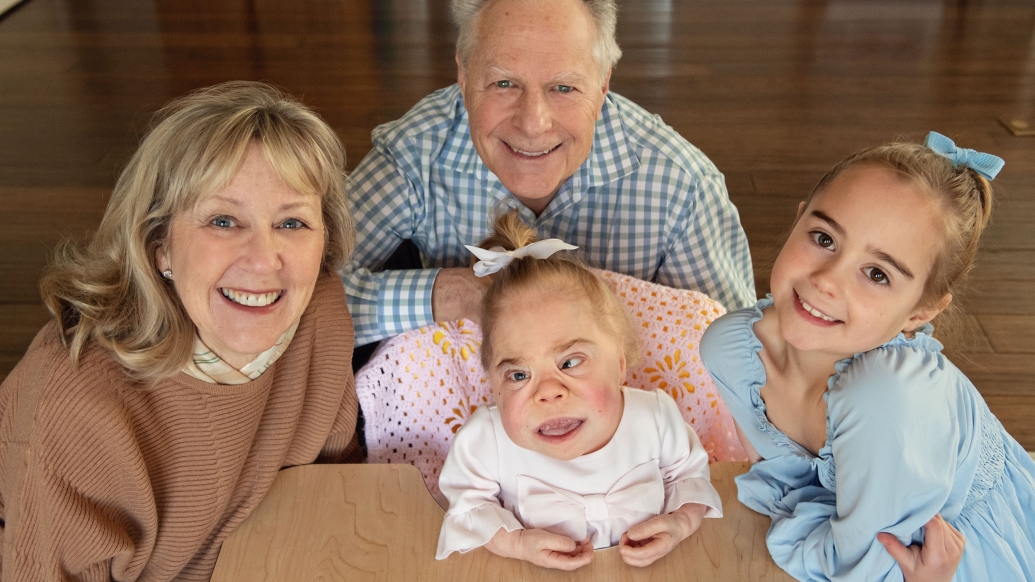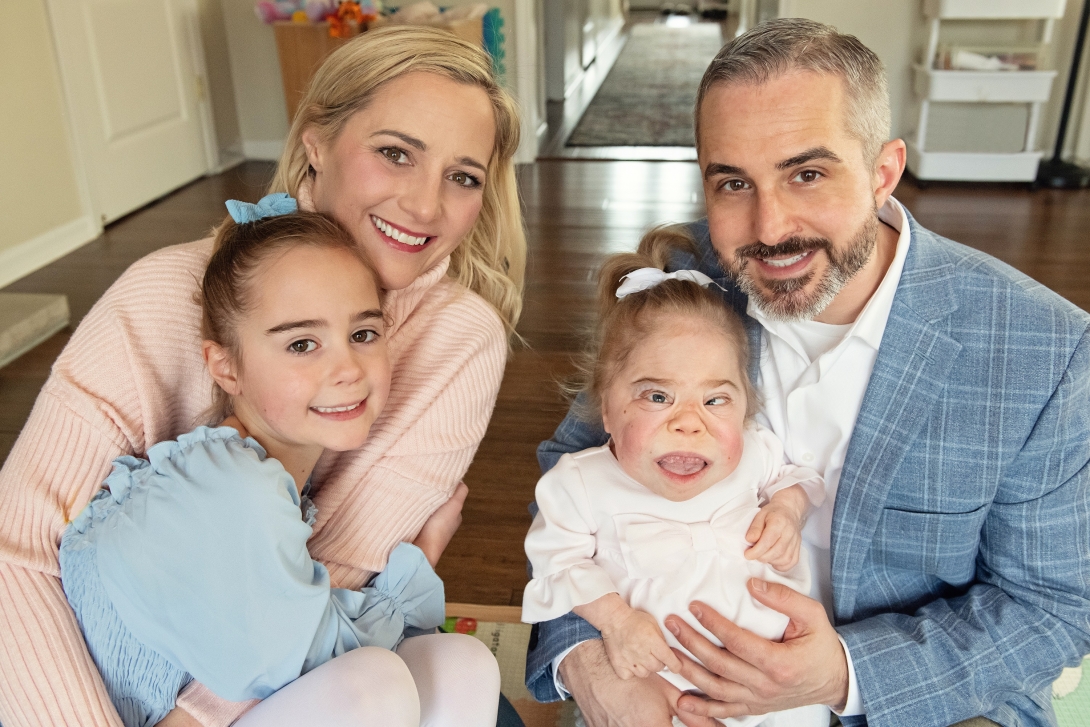Gift will support technology-enabled care and social work services across multiple specialties
7:38 AM
Author |

ANN ARBOR, Mich. – A $7.5 million gift from the Wayne and Joan Webber Foundation to University of Michigan Health C.S. Mott Children’s Hospital will help advance technology-enabled care and provide social work services that offer much-needed comfort and support to families of children who have complex medical needs.
The gift was made in honor of Reese Partlow, grandniece of Wayne and Joan Webber. Now 11 years old, Reese has inspired her family and care providers with her determination and loving demeanor while living with mucolipidosis type II disease, also known as I-cell disease. Classified as a lysosomal storage disorder, the rare genetic condition affects many parts of the body, including the muscles, skeleton, heart, and brain.
Children with I-cell disease develop slowly after birth and usually stop growing during the second year of life. Development is delayed, particularly for speech and motor skills such as sitting and standing. There is no cure, and most affected individuals do not survive past early childhood.
Reese’s grandmother, Cynthia Webber Helisek, who is also Wayne and Joan’s niece and president of the Webber Foundation, wanted the foundation’s gift to make an impact that would improve all aspects of the health care experience so that children going through complicated medical journeys can live their best lives.
Transforming care for children with complex needs
A portion of the donation will establish the Wayne and Joan Webber Little Victors Virtual Care Congenital Heart Fund. The Virtual Care Heart Fund will enable the use of technology like wearable devices, virtual therapies, and other remote services to make care more responsive for children with cardiac conditions among their complex medical concerns.
The generous donation will also create the Wayne and Joan Webber Little Victors Virtual Care Gastrointestinal Fund, which will provide similar technology-enabled care for young patients with complex needs who also require gastrointestinal care.
With technology able to play a more significant role in care plans, patients and families from around the state of Michigan and beyond will have timely access to U-M physicians, nurses, and specialists.
“The use of virtual visits, monitoring devices, and other tools was growing before the COVID-19 pandemic, but that experience really showed how these resources could transform care for the kids who need it most,” says John Charpie, M.D., Ph.D., the Amnon Rosenthal Professor of Pediatric Cardiology, division director of pediatric cardiology at U-M, and co-director of the U-M Health Congenital Heart Center at Mott.
“These tools can keep our care teams more connected with families and could decrease their trips to the hospital because we can quickly intervene and respond to changes in a patient’s health based on real-time monitoring of their condition,” Charpie said.

The Webber Foundation gift will also establish the Reese Partlow Social Worker in Genetic Counseling Fund. This fund will provide a trained social worker to help families absorb information and cope with any initial shock from the news of a life-altering genetic diagnosis, while also directing them to resources and support networks.
“We are so grateful for the generosity and vision of the Webber Foundation. This gift drives the innovation and technology that keeps Mott at the leading-edge of pediatric medicine and allows our Little Victors and their families to receive the highest quality care, even in the comfort of their own homes,” says Luanne Thomas Ewald, M.H.A., FACHE, chief operating officer at Mott and Von Voigtlander Women’s Hospital.
“And the commitment to providing social work services is so important to families that will undoubtedly encounter questions and difficulties throughout their child’s journey. These types of services can make sure that they feel supported and know that they aren’t alone,” Ewald says.
“Everybody loves Reese”
“It’s so cool to see how people love Reese so much,” says her mom, Leslie Partlow. “And she loves everyone — she just wants someone to play with her all the time, and she has a great, subtle sense of humor.”
Reese first came to Mott to be treated at the congenital heart center when she was seven weeks old with a diagnosis of dilated cardiomyopathy. Developmental delays led to more testing and the diagnosis of I-cell was confirmed.
In the time since, she has endured multiple surgeries, respiratory illnesses, feeding tubes, and other daily challenges that have led to her being cared for by several different specialties across Mott, as well as the Ann Arbor-based Arbor Hospice since 2017. Through it all, Reese has possessed an unwavering resilience and a determination to remain happy.
To honor Reese and inspire other Mott families, the Webber Foundation gift will also designate the Mott Pediatric Cardiothoracic Intensive Care Unit as the Reese Partlow PCTU.
“The way Reese is living her life has taught me and the people around her so much. Through the surgeries, illnesses, and other challenges, she's managed to find a way to not let anything hold her back,” says her father, Mike Partlow.
“Hopefully her story can capture the fact that great work is being done at Mott and her experience can help other kids moving forward.”





